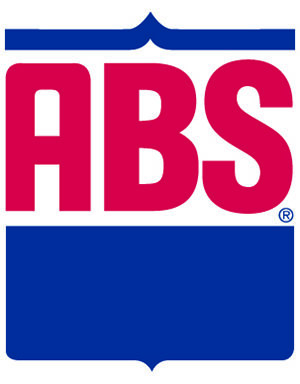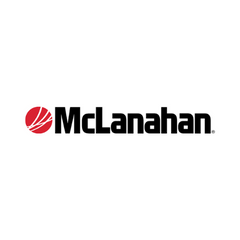Note: The following are opinion commentaries. I am responding to your question of whether or not I favor Foundation for the Future (FFTF). I am a seventh-generation dairy farmer owning and operating a closed herd of 60 registered Holsteins in Lancaster County, Pennsylvania. (Visit www.ebyfarm.com for more information.) Many blame co-ops; others blame corporate dairies for the mess we are in. Yes, they are part of the problem, but more importantly they are the result of a much bigger problem.
I blame the government for encouraging the growth of dairies only for the benefit of cheap food for its citizens. They did this in many ways; two of those ways were huge: cheap corn and cheap labor.
As long as the government had control of these two main factors this was a win for all – except farmers, especially those farmers that didn’t expand their dairies.
Funny thing happened – the government lost control of both in the same year. If you ask me, FFTF is Plan B. Politicians realize that, though not a perfect plan, this is the best chance they’ve got to maintain control.
To them the perfect plan would be to go back to having Plan A. However, they are smart enough to know that’s not going to happen due to globalization, immigration raids and corn ethanol, just to name a few.
FFTF is nothing more than a government bailout of dairy farms, funded by dairy farms that are fiscally responsible. There are three rules one should follow when looking to expand your dairy.
1. Never expand beyond your land base for feed.
2. Never expand to the point of needing illegal labor.
3. Never expand counting on government subsidies beyond this calendar year. When you do, you take a risk.
The government encouraged farmers to take this risk. This is why, when looking in the rearview mirror, you see that half the nation’s milk, comes from large dairies.
So now I’m being told by Jerry Kozak, “This is the right thing to do, stick together as dairy farmers, and embrace FFTF.” What he might as well say is, “We as a country need these large dairies to maintain our position on the world market.”
I would be OK with that, because that is the truth. It’s not about an insurance plan for me as a small farmer. Don’t talk to me as if I don’t see straight through this. I wouldn’t need insurance if large farms that banked on cheap corn and cheap labor fell off a cliff.
Should I feel bad? A little, but someone has to win here. This is America, right? We still are a capitalist nation, I think.
As soon as the government messes with things, responsible ones that should have won lose, and vice versa. The government should not be in control of choosing who wins and who loses.
That includes those who had faith in the government to save them with Plan B. Having faith in the government is where large dairies, without a land base and with illegal labor and poor tax planning, went wrong.
Now Jerry is asking all of us to trust the government. What part of stupid doesn’t he think I see?
—Mike Eby
Dairy farmer
Gordonville, Pennsylvania
No: The [processors] will not pay us any more than they have to. I don’t trust the [processors], and I don’t trust the government. I’m also tired of everyone telling me what I can and cannot do. They should try to pay the feed bills on lower prices.
Don and Barbara Stoerp
Hebron, Illinois
No: In looking at the changes made, it appears to be designed even more for the Western dairies at the expense of the small family farms. Mega-dairies are likely to buy margin protection whereas bankers will likely force the small family farms to sign up for this program. Therefore, the burden to balance the market will likely be forced on milk-deficit areas.
Simon Yoder
Guthrie, Kentucky
No: We don’t support the Peterson Bill. We just ask for a fair share of the retail price of milk. We have no desire to be involved in an insurance program paid for by the American tax payer’s welfare program so processors can get cheap milk. There are much better plans out there.
Kenneth Horst
Phelps, New York
No: It looks like NMPF is trying to reinvent the milk wheel for the processor industry. Pay the lowest price discovered – not pay components and offer a cockamamie insurance program tied directly to a supply management deal that will not work unless all dairy producers are involved in it.
With so many irregularities in their proposal, it will make for a very rough, shabby ride if put into place. No to FFTF – look further at other proposals coming along like S. 1640 or DISSA by National Dairy Producers Organization.
Thomas Monteith
Woodland Farms
No: Don’t be fooled ... This is just FFTF renamed with small changes that obviously have not been calculated by NMPF. Component pricing would still end, leaving many, many farmers at a disadvantage because of the breed of cow they milk. There are many loopholes here also.
What keeps two farmers from working together to manipulate the system? Farmer A signs up for insurance; Farmer B does not. When the program “triggers,” and supply management kicks in, Farmer A trucks some cows over to Farmer B to keep his milk supply down. (He certainly isn’t going to ship any extra that he doesn’t get paid for).
Farmer A gets a fat insurance check, Farmer B gets to ship more milk and make more money. Farmer A isn’t paying to feed cows that he’s not selling milk from, and Farmer B only feeds them when he sells the milk from them.
The people have already spoken about how they feel about FFTF and it wasn’t good. This isn’t any better!
TJSH1
Online reader comment
No: I see this as a terrible system. Let the current system work. If the government and banks would stay out of dairy, only the truly viable farms would survive and we would have a stable, fair price.
John Hay
Online reader comment





